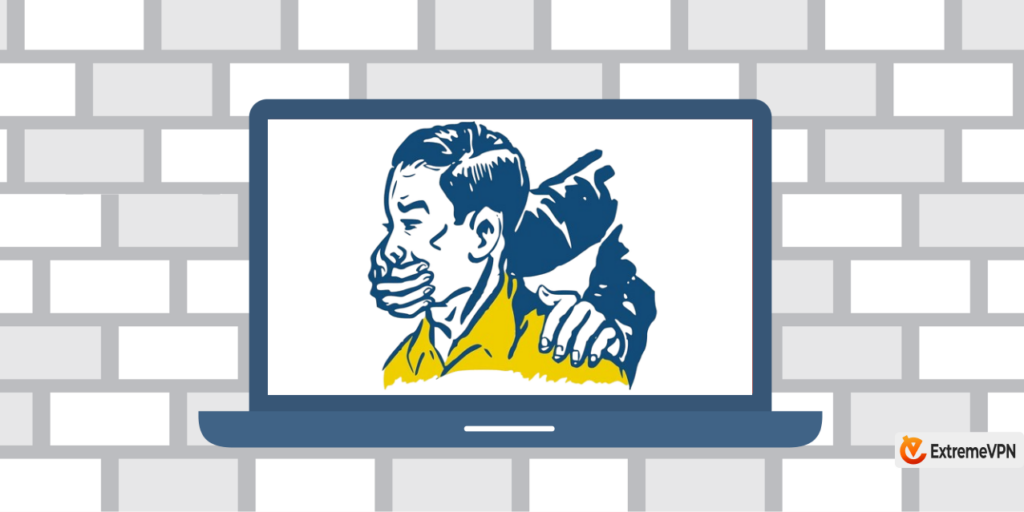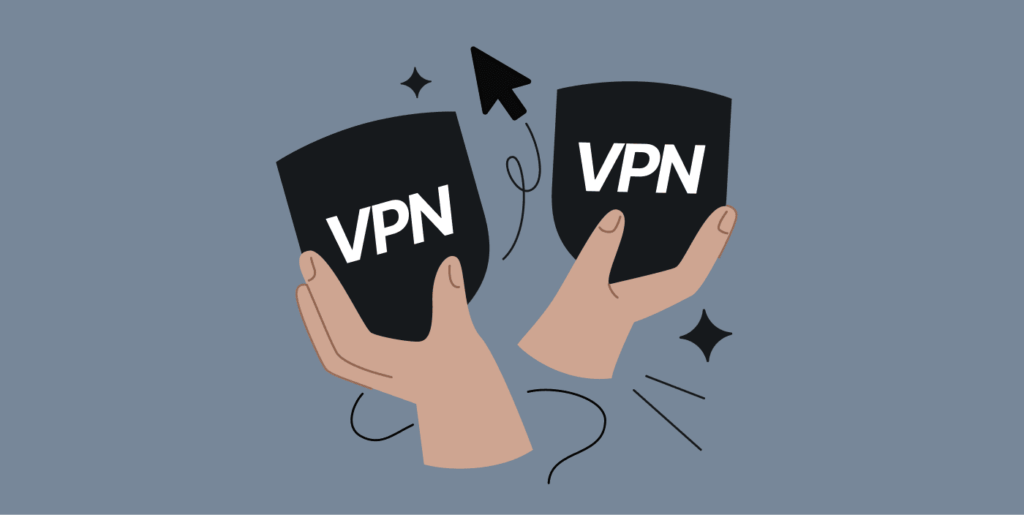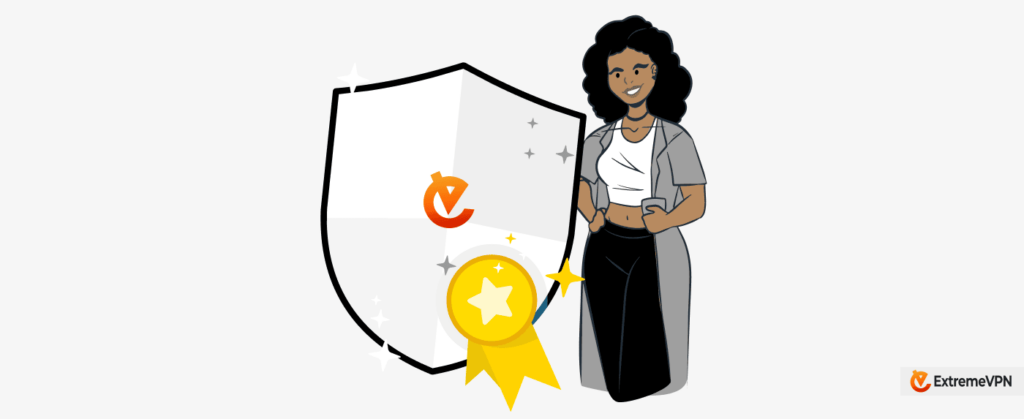Today, the internet has become a precious instrument for self-expression, information sharing, and communication. However, many Governments and organizations still restrict internet access to their users for several reasons. For example, many websites and informational platforms are banned to access in several countries worldwide.

If that’s your situation right now and you want a quick solution for it, don’t worry. In this guide, we’ll explain why internet restrictions take place and how you can bypass them with the help of a VPN (the easiest and quickest solution to it).
Bypassing Censorship Using a VPN – Quick Guide
Here is how you can avoid geo-blocks and access whatever content you want from anywhere:
- Subscribe to a VPN provider. Make sure you select one that has stealth servers to keep you anonymous. ExtremeVPN has got your back.
- Get the VPN app. Go to the Play Store or App Store and download the application. We offer a dedicated app for all operating systems, i.e., iOS, Android, Windows, and macOS.
- Launch the application. Open the app and log in using the credentials that you’ve used to sign up.
- Connect to a server. From the list of servers, select one that works best for you (if you want to access a site available in the UK, select UK).
- With your connection established, you can now browse the internet hassle-free.
What is Internet Censorship?
To put it simply, internet censorship is controlling or restricting access to information and online content. This is particularly done by Governments, organizations, or authorities to retain the information available to users. It involves the deliberate restriction (blocking, filtering, or suppression) of certain websites.
The causes of internet censorship can range from political, ideological, religious, and cultural aspects. For example, governments of several countries block social media platforms (i.e., India bans TikTok) to stop promoting negative remarks about the state and to uphold their power.
They also use it to mute opposition or protect national security. Under regional laws and cultural values, it also restricts offensive or unlawful information.
Why is the Internet Censored?
The Internet could be banned for various reasons in various countries (the same reasons can’t be applied everywhere). However, here are a few typical ones:
1. Political Control
As mentioned earlier, Governments may censor the internet to maintain political control or protect their authority. They use censorship to limit access to information that criticizes the state.
2. National Security
Censorship could also for done for the sake of national security. How? It helps to prevent the spread of information that threatens public safety. It also stops communication that helps criminal activities — terrorism, cybercrime, etc.
3. Cultural Norms
Some nations use internet censorship as a way to defend their cultural and religious values. They prevent perceived harmful consequences on society. They limit offensive, immoral, or against cultural standards content.
North Korea can be the perfect example for it — the country enforces strict censorship to uphold its cultural narrative.
4. Protecting Intellectual Property
Censorship stops copyright violations or internet piracy. To protect the rights of copyright holders, it restricts pirated websites that use content without permission.
For example, many torrent websites are censored in various parts of the world. Why? Because users access these platforms to get premium content for free, and states are against this act.
5. Filtering Inappropriate Content
Internet censorship removes offensive or objectionable information. It mainly safeguards minors and promotes social norms. It prevents access to violent material (adult or pornographic), offensive statements, or other unlawful acts. For example, countries like Pakistan ban adult websites to protect their minors.
6. Moral and Religious Reasons
Religious or moral beliefs are another reason why countries enforce restrictions. Sometimes, authorities seek to restrict the content considered blasphemous. They do this to prevent people from getting into immoral or inconsistent debates with religious doctrines.
7. Educational or Business Purposes
Many countries have laws regarding censorship in educational institutions. The reason behind this is to protect students from accessing inappropriate content. For example, institutes enforce several filters and restrictions that prevent access to explicit material.
It helps stop the violence or accessing websites unsuitable for educational environments, thus creating a safe and conducive learning environment for students.
Similarly, several companies also restrict their employees from accessing websites that can result in distractions. This is done so that they can focus on work-related tasks.
Internet Censorship – Main Types

As censorship frequently interacts with a nation’s legal framework, the issue always has a judicial component. We’re here to investigate the technological aspect, though. However, you must first familiarise yourself with what methods are used to enforce internet blocks.
Content or Website Filtering
Content filtering restricts or filters particular types of material using technology. When we say that an adult website is blocked or restricted, it’s where you should know that the censorship is enforced based on its content it offers.
DNS Tampering and Redirection
DNS tampering is changing the responses to DNS queries. It occurs to reroute users to other websites or to block access to particular websites. It restricts access to websites by driving users to alternative material.
IP Blocking
IP blocking limits access to certain types of IP addresses linked to some websites or services. Governments may limit platform access by blocking IPs corresponding to such addresses.
Search Engine Filtering
Search engine filters control the search results offered by well-known search engines. Here, authorities ask search engines to exclude particular material from search results. It prevents consumers from finding or accessing specific information.
Network Disconnection
Sometimes, authorities may decide to cut down internet access to a whole nation or area. It happens by shutting ISPs down or taking technological steps to remove the site from the global internet infrastructure.
Deep Packet Filtering
Packet filtering is to inspect and filter network traffic at the packet level. It is based on protocols, ports, or other aspects of network packets.
How a VPN Helps in Bypassing Internet Censorship

Let’s discuss what a VPN does when you use it:
- It masks your IP address — it replaces your current location with a new one, and you become anonymous. Since the websites and authorities can’t see where you’re actually based, there will be no restrictions or geo-blocks.
- It encrypts your internet traffic, so you get a secure pathway to the web with the help of an encrypted channel. This means that the information between you and the sender or receiver is only decodable by both parties (keeps your safe from government or ISP tracking, thus making it easy to bypass blocks).
Yet, remember that some areas may block VPN usage; thus, make sure to follow your country’s rules and regulations.
Why ExtremeVPN is the Best VPN to Access Blocked Websites

ExtremeVPN provides state-of-the-art security, with over 6,500+ VPN servers spread across 78+ regions. We have dedicated P2P servers that allow you to stream seamlessly and download files anonymously.
Moreover, with ExtremeVPN, you can use public Wi-Fi privately and enjoy the best gaming experience. Get around censorship, bypass ISP throttling, avoid DoS attacks, and more with just a single click.
ExtremeVPN uses the best protocols (OpenVPN, IPSec, WireGuard, L2TP, and SSTP) and provides unbeatable security and privacy. The best part? You can use a single account on up to ten devices.
Here is why ExtremeVPN stands out from other VPN providers:
Stealth Mode or Obfuscation
This feature hides your VPN usage online, making it difficult for censorship systems to find and block it. It makes it easier to get around censorship controls.
Split Tunneling
This function allows you to segment which of your traffic should be encrypted by the VPN and which shouldn’t. It lowers the risk of discovery and is helpful while visiting prohibited websites. However, to stay protected while visiting prohibited websites, those specific connections must be routed through the VPN.
DNS and IPv6 Leak Protection
DNS and IPv6 leaks can jeopardize your privacy by exposing your IP address and may result in censorship. ExtremeVPN offers strong DNS and IPv6 leak prevention that makes sure your real identity and online activities stay hidden, without any data leaks.
Kill Switch
This feature cuts your internet connection whenever your VPN connection is disconnected. This is offered particularly so that no one can find out about your online traces, because VPN disconnection means that you are now visible to your ISP and other malicious entities.
Strict No-logs Policy
ExtremeVPN takes the privacy of its customers seriously. We believe that you’ve every right to protect your data, and for that reason, we implement a strict no-logs policy. This means that none of your data, i.e, online activities, and personal information, is ever stored or collected by ExtremeVPN.
Transparency
ExtremeVPN upholds transparency and peer review values in its work. By these core beliefs, the organization provides full access to the code of its applications, allowing anyone to assess the underlying logic.
ExtremeVPN also takes the services of certified security specialists to audit its software frequently. Additionally, we publish the reports publicly, unlike some other VPN companies.